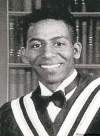Wake-up call for Muslim community
Activist says Islamic extremism on Canadian soil is a reality
Advertisement
Read this article for free:
or
Already have an account? Log in here »
To continue reading, please subscribe:
Monthly Digital Subscription
$0 for the first 4 weeks*
- Enjoy unlimited reading on winnipegfreepress.com
- Read the E-Edition, our digital replica newspaper
- Access News Break, our award-winning app
- Play interactive puzzles
*No charge for 4 weeks then price increases to the regular rate of $19.00 plus GST every four weeks. Offer available to new and qualified returning subscribers only. Cancel any time.
Monthly Digital Subscription
$4.75/week*
- Enjoy unlimited reading on winnipegfreepress.com
- Read the E-Edition, our digital replica newspaper
- Access News Break, our award-winning app
- Play interactive puzzles
*Billed as $19 plus GST every four weeks. Cancel any time.
To continue reading, please subscribe:
Add Free Press access to your Brandon Sun subscription for only an additional
$1 for the first 4 weeks*
*Your next subscription payment will increase by $1.00 and you will be charged $16.99 plus GST for four weeks. After four weeks, your payment will increase to $23.99 plus GST every four weeks.
Read unlimited articles for free today:
or
Already have an account? Log in here »
Hey there, time traveller!
This article was published 02/10/2010 (5526 days ago), so information in it may no longer be current.
NEWS that Canada’s security agency has been desperately searching for three missing Winnipeg students could be a wake-up call to Winnipeg’s Islamic community, says one activist.
That’s what happened in Ontario following the trials of the Toronto 18, the young Muslim men charged with plotting to bomb the Toronto Stock Exchange and several other locations.
“The Toronto 18 trial made the community wake up to the fact that craziness does take place here,” said Hussein Hamdani, a young Hamilton lawyer who helped organize the Toronto Muslim Summit in 2003 and sits on the federal government’s Cross-Cultural Roundtable on Security. “It’s not just this grand conspiracy by security agencies. This is real.”
Toronto’s Muslim community, even those who felt a deep sense of injustice at Canada’s foreign policies involving Islam, unanimously condemned the violence planned by the Toronto 18. And Hamdani said it forced many to look more closely for hints of extremism among their own families and friends.
The head of CSIS has warned Parliament of an increase in homegrown extremism among second- and third-generation Canadians. So far, terrorist cells and radical Islamism have been largely confined to cities like Toronto and Montreal, home of Ahmed Ressam, who was arrested in 1999 for planning to bomb the Los Angeles International Airport.
But in August, former Winnipegger Hiva Alizadeh was charged in connection with a jihadist plot in Ottawa. Alizadeh attended the MIA mosque in Winnipeg and worked at a popular Muslim grocery store before moving to Ottawa a year and a half ago.
The three University of Manitoba students — Ferid Imam, Muhannad al-Farekh and Miawand Yar — have been missing since early 2007 when they travelled together to Pakistan and have not called home in years. They have not been charged with any terrorist-related crimes, but the Globe and Mail reported they were last seen in Pakistan’s Waziristan district on the border with Afghanistan where many militants have taken shelter.
Sohail Raza, president of the moderate Muslim Canadian Congress, cautioned the facts of the case are still murky. But he said extremism is growing among young people all over Canada and the West. It’s been ferreted out faster in larger cities but it festers in smaller ones as well.
He was less optimistic Canada’s Muslim community is dealing adequately with it, even after the Toronto 18 trials exposed the realities of radicalism.
“The people I call ‘nine-to-five Muslims’ have no idea what their kids are doing,” said Raza. “And, if half the population, the women who take care of the family, is relegated to making tea in a back room, how are we going to have control over our kids?”
Hamdani said radicalized youth tend to be self-taught by the Internet or by charismatic leaders who prey on the disaffected and teach a corrupted version of Islam. And homegrown extremists tend to internalize perceived global injustices against Islam, like the wars in Afghanistan and Iraq.
“We have to get them back into the mosques where they can learn to express themselves,” said Hamdani. “If you are trying to do something in the name of Islam, then you had better learn Islam.”
maryagnes.welch@freepress.mb.ca


